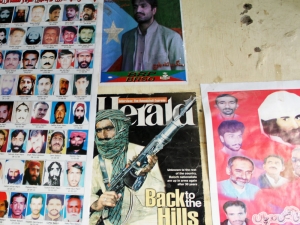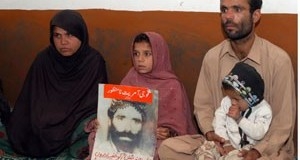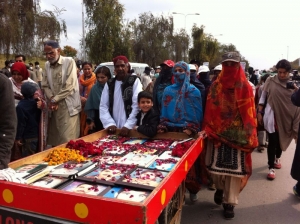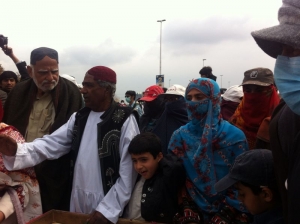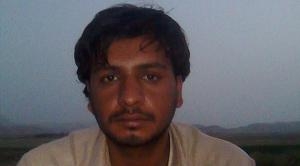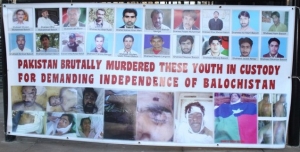QUETTA: Disillusioned by the lack of government support, Zakir Majeed’s sister is forced to resort to prolonged protests to voice her plight. Majeed has been missing for over a year now and the authorities, including human rights organisations, have done little to help his distressed family.
Majeed, a local leader of the Baloch Students’ Organisation, was picked up by security agencies in Mastung district on June 8, 2009, his sister alleges.
“Over the past five months, I have been holding hunger strikes in front of the Karachi and Quetta Press Clubs to capture the attention of humanitarian organisations,” she said, adding that she had also filed petitions in the Balochistan High Court and the Supreme Court without any success. However, she said that the case, among others, was being taken up by the UN which gave her a ray of hope.
She is not alone in her quest for the recovery of a loved one; several relatives of other missing persons have also pitched camps near the Quetta Press Club.
A 26-year-old tailor, Farooq Bangulzai, has been waiting for the past nine years for just a glimpse of his father, Mir Asghar Bangulzai, who was picked up by armed men from Quetta in October 2001.
He said he approached ISI officials, who assured him of the early release of his father, adding that at that time, he was accompanied by former lawmaker Hafiz Hussain Ahmed.
“I will continue to record my protest wherever I can until my father returns,” he says.
Chairman Voice for Baloch Missing Persons (VFBMP) Nasrullah Baloch said that the list of missing persons keeps getting longer, adding that 350 people have been listed as missing since the elected government took over power.
“We have documentary evidence regarding 1,100 missing persons,” he said.
Equating such repression with “state terrorism”, he said he was saying this because all missing persons had some sort of political affiliation with organisations struggling for the rights of Baloch people.
The VFBMP boycotted the hearing of a judicial commission set up to trace the whereabouts of the missing persons. “They were not serious,” explained Nasrullah.
When asked to comment on the government’s performance, provincial Home Secretary Akbar Durrani said he was satisfied, adding that the government had received complete data about “just 107 missing persons”, of which 22 people had so far been traced.
Durrani claimed that some people wanted to incorporate names of proclaimed offenders in the list of missing persons.
“We are not ignorant of this issue. The police have been directed to register the cases following a set procedure. They can also include officials of secret agencies if cases are filed against them,” he maintained.
Durrani said that people who had been traced clearly admitted that they had gone “underground” because of certain political affiliations.
He said that evidence and complete data were prerequisites for taking up such cases.
Durrani admitted that the Home Department had sent a letter to the federal interior minister in protest after complaints by several people that personnel of the Frontier Corps had picked up a number of people without handing them over to police. “Further action is now up to the interior ministry.”

